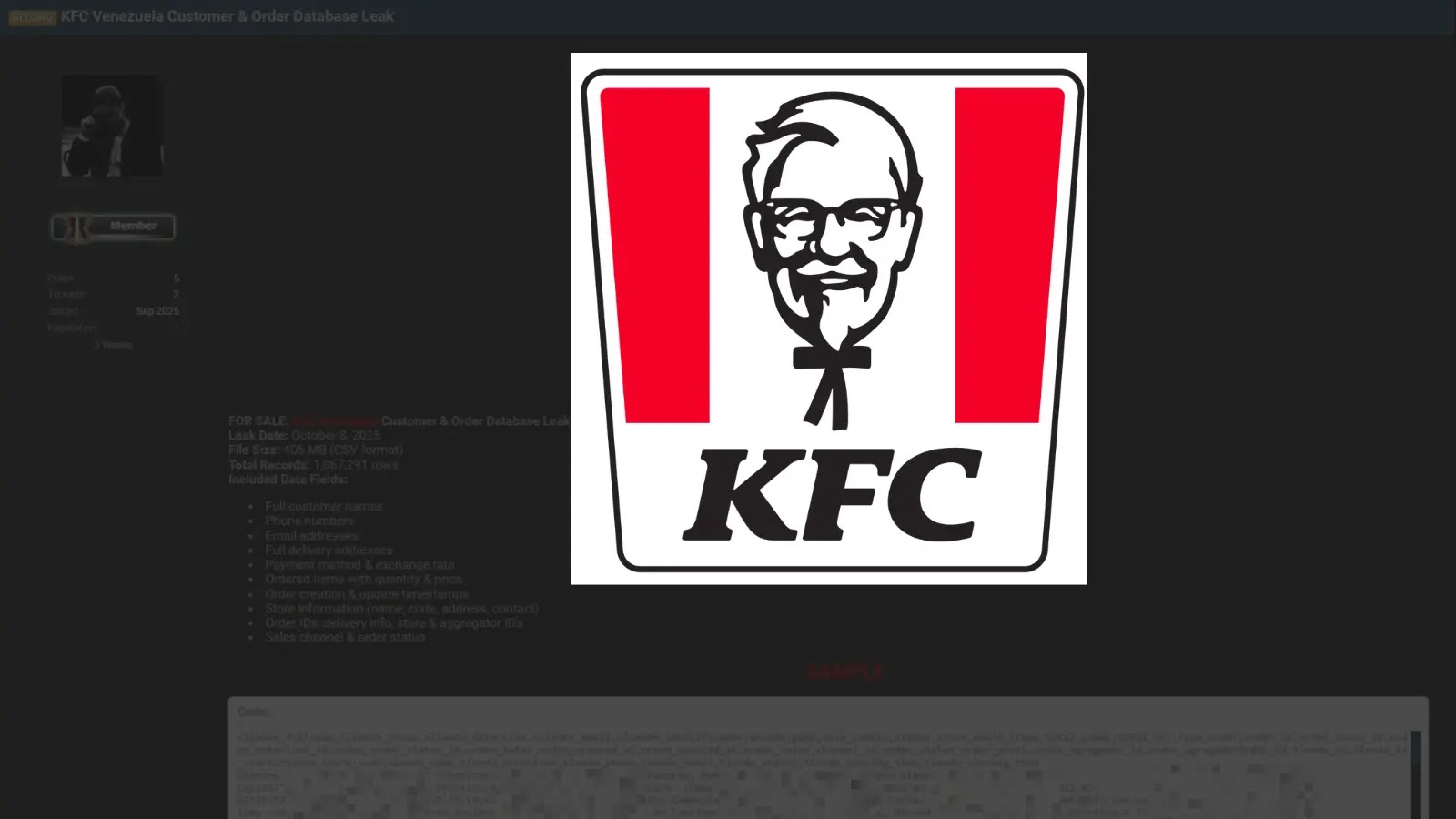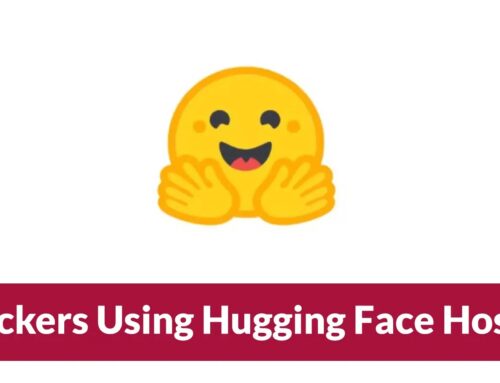
KFC Venezuela Alleged Data Breach – 1 Million Customer Records Exposed
The digital frontier, while offering unprecedented convenience, also presents an expanding battlefield for cybersecurity threats. When a brand as globally recognized as KFC faces an alleged data breach, it sends ripples of concern far beyond its customer base. Recent reports indicate that KFC Venezuela has been the target of such an incident, with a threat actor reportedly offering a database containing over one million customer records for sale on a dark web forum.
This alleged breach, exposed on October 8, 2025, highlights the persistent and evolving dangers of cybercrime, particularly regarding sensitive personal and order information. The implications for affected individuals are severe, ranging from potential financial fraud to identity theft. For organizations, it underscores the critical need for robust data protection strategies.
The Alleged KFC Venezuela Data Breach: What We Know
According to the information circulating, a malicious actor has claimed responsibility for breaching KFC Venezuela’s systems. The stolen data, now being advertised on a dark web marketplace, allegedly comprises a comprehensive dataset related to approximately one million customers. While the full scope and veracity of the claims are still being assessed, the reported contents of the database are deeply concerning.
This incident, if confirmed, represents a significant compromise of customer trust and data security. The date of advertising, October 8, 2025, suggests either a recent infiltration or the disclosure of previously acquired data at this time. Such an event serves as a stark reminder that even well-established enterprises are not immune to sophisticated cyberattacks.
Data Exposed: A Goldmine for Cybercriminals
The details of the alleged breach indicate a substantial collection of personally identifiable information (PII) and highly sensitive customer data. While specific fields are often redacted in public disclosures to protect potential victims, typical data points in such breaches can include:
- Full Names: Essential for identity verification and social engineering.
- Email Addresses: Commonly used for phishing attacks and account recovery attempts.
- Phone Numbers: Valuable for SMS phishing (smishing) and direct contact scams.
- Physical Addresses: Facilitating targeted scams, package interception, or even physical threats.
- Order History: Provides insights into spending habits, preferences, and potentially credit card last four digits (though not explicitly stated in this case, it’s a common risk).
- Customer Account Information: Potentially including usernames and hashed passwords, though the latter’s presence hasn’t been confirmed.
The aggregation of such data creates a potent toolkit for threat actors, enabling them to construct highly convincing phishing campaigns, execute identity theft, and potentially compromise other online accounts where users might reuse login credentials. The sheer volume of over one million records amplifies the potential impact of this alleged breach.
Impact and Risks for Affected Individuals
For the individuals whose data is allegedly compromised, the risks are substantial and multifaceted. The immediate concerns revolve around:
- Identity Theft: With full names, addresses, and other PII, criminals can attempt to open new lines of credit, apply for loans, or even claim government benefits in the victim’s name.
- Financial Fraud: Armed with personal details, sophisticated phishing schemes can be launched to trick individuals into revealing financial information, such as bank account details or credit card numbers.
- Phishing and Smishing Attacks: The leaked email addresses and phone numbers become prime targets for highly personalized and convincing fraudulent communications. These might mimic legitimate organizations or even KFC itself, attempting to solicit further sensitive data.
- Account Takeovers: If users have reused passwords across different services, the leaked data could be used in credential stuffing attacks against other online platforms, leading to account compromises.
- Reputational Damage: While less direct, the misuse of personal data can sometimes lead to unforeseen reputational harm if false accounts or activities are conducted under the victim’s identity.
Remediation Actions and Best Practices
While KFC Venezuela investigates this alleged breach, both the organization and its customers have crucial steps to take. Organizations, in general, should consider the following:
- Incident Response Plan Activation: Immediately activate and execute a comprehensive incident response plan, involving forensic analysis, containment, eradication, and recovery.
- Customer Notification: If confirmed, promptly notify affected customers, providing clear guidance on protective measures. This is often mandated by data protection regulations.
- Password Reset Policies: Advise customers to change their passwords, especially if password hashes were compromised. Implement strong password policies and encourage multi-factor authentication (MFA).
- Enhanced Monitoring: Increase vigilance for unusual activity on their networks and systems.
- Security Audits: Conduct thorough security audits and penetration testing to identify and remediate underlying vulnerabilities that led to the breach.
- Employee Training: Reinforce cybersecurity awareness training among employees, focusing on phishing detection, secure coding practices, and data handling protocols.
For individuals who believe they may be affected by the KFC Venezuela breach or any other data compromise, the following actions are highly recommended:
- Change Passwords: Immediately change passwords for their KFC Venezuela account and any other online accounts where they might have used the same or similar credentials. Use strong, unique passwords for each service.
- Enable Multi-Factor Authentication (MFA): Activate MFA wherever possible to add an extra layer of security to online accounts.
- Monitor Financial Accounts: Regularly check bank statements, credit card statements, and credit reports for any suspicious or unauthorized activity. Consider placing a fraud alert on credit reports.
- Be Wary of Phishing: Exercise extreme caution with emails, SMS messages, or calls claiming to be from KFC, banks, or other institutions, especially if they request personal information or login credentials. Verify the legitimacy of such communications independently.
- Update Software: Ensure all operating systems, web browsers, and security software are kept up to date to patch known vulnerabilities.
Conclusion
The alleged KFC Venezuela data breach is a stark indicator of the relentless cyber threats facing businesses and individuals globally. The potential exposure of over one million customer records underscores the critical importance of robust cybersecurity defenses, proactive incident response, and continuous vigilance. For organizations, it reiterates the mandate to prioritize data protection and customer trust. For individuals, it serves as a powerful reminder to adopt strong personal cybersecurity hygiene, remaining ever-alert to the tactics of cybercriminals. The digital landscape demands perpetual readiness against evolving threats, ensuring that personal information remains secure.





